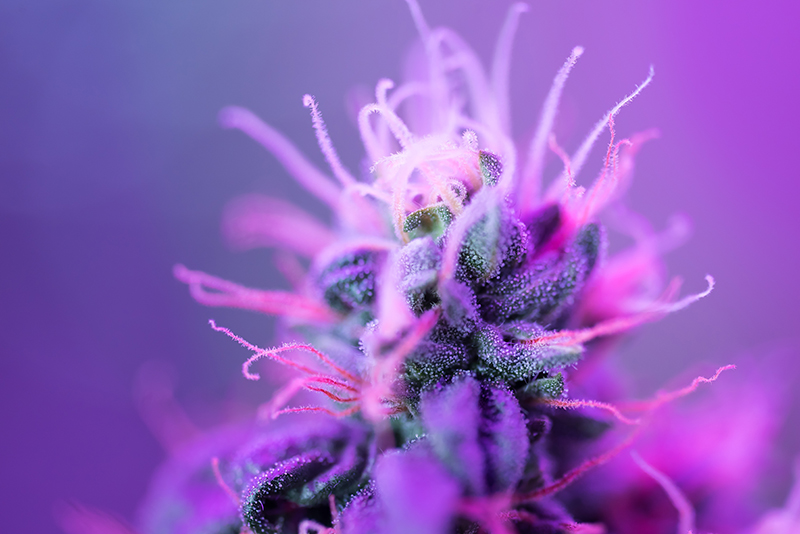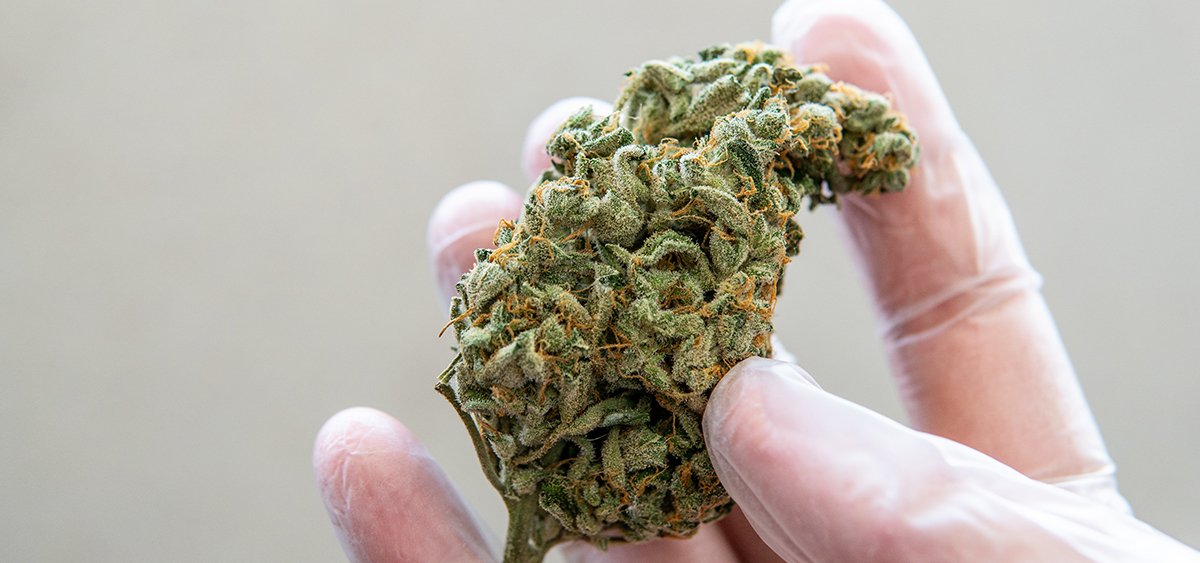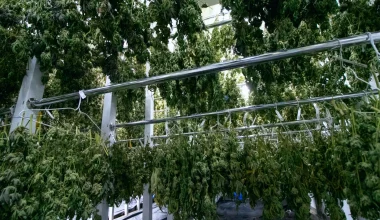Inflammation is the body’s response to some type of abnormality or infection. The reason your lymph-nodes become swollen when you are sick is because white blood cells are congregating in large numbers to prepare to “engulf” the foreign target. It is our body’s built-in way to fight off invaders. There are many players at work in these battles — proteins called cytokines, lymphocytes, and other cell types with scary names all working together to target and destroy pathogens.
The Endocannabinoid System and The Immune System
The endocannabinoid system comprises two types of receptors; CB1 receptors are mainly located in the brain while CB2 receptors are found primarily in the peripheral nervous system on immune cells. There is approximately 10-100 times more gene expression of CB2 in immune cells as compared to CB1. Endocannabinoids that activate these receptors are said to control various immune system functions like cell signaling cascades and homeostasis of the immune system, specifically in places like the lymph-nodes and the gut. Immune cells are even able to produce endogenous cannabinoids like 2-AG which acts as a regulator in this system. As for exogenous cannabinoids like THC and CBD, they generally seem to have immunosuppressive effects—they inhibit cell signaling that normally leads to pro-inflammatory or otherwise active immune responses.
Chronic diseases like Inflammatory Bowel Disease (IBD) and psoriasis arise when the immune system becomes dysregulated and our immune responses become heightened. This leads to inflammation and pain which, over time, can become frustrating and downright uncomfortable. For individuals who struggle with chronic inflammation, this inhibitory response caused by cannabinoids like THC and CBD may actually be helpful in alleviating some of this pain and discomfort.

Cannabinoids and Inflammation: Various Pathways
CBD’s ability to decrease inflammation is perhaps its most popularly touted benefit. This statement has been backed by science; a 2016 study found that CBD applied transdermally to rats significantly reduced arthritis by diminishing certain cells related to the inflammatory immune response. But how exactly does CBD and other cannabinoids reduce inflammation in the body, and how do they interact with our immune systems?
Cytokines
One way that cannabinoids reduce inflammation in the body is through the suppression of cytokines. Cytokines are a class of small proteins that modulate immunity through cell signaling. When secreted, they trigger a cascade of signals, recruiting more cytokines to the source. This is an important part of how inflammation occurs.
Tumor-necrosis-factor alpha (TNF-α) is one type of cytokine. Overexpression of TNF-α has been implicated in Crohn’s Disease and IBD, as well as some cancers and even anxiety and depression (though the latter is controversial and still being studied). Interestingly, we also know CBD can help with pain and inflammation related to IBD. Specifically, CBD in some instances has been seen to directly decrease TNF-α in mice.
Interleukins are another main type of cytokine involved in the immune response and are often modulated by both endogenous and exogenous cannabinoids. A 2019 study found that CBD alone did not inhibit a certain type of interleukin (IL-8) but a whole plant extract of cannabis sativa did, suggesting that other cannabinoids are at work interacting with immune regulation. This finding provides more evidence for the entourage effect, the idea that the various cannabinoids in a whole plant extract or cannabis flower interact with each other to create different effects than what a single cannabinoid could do on its own.
The NF-κB Pathway
NF-κB is a protein involved in immune regulation. It lays dormant (inhibited) in unstimulated cells and is activated by signals coming from outside the cell. It is responsible for cell proliferation, cell survival responses, and other immune responses. When activated, NF-κB causes an inflammatory response. Thus, inhibiting this pathway can decrease chronic inflammation that occurs from excessive cell signaling.
A 2019 study found that both cannabis sativa extract and CBD alone inhibited the NF-κB pathway, mainly through TNF-α (TNF-α can activate the NF-κB pathway). The cannabis extract also downregulated some genes associated with skin inflammation through this pathway which could be beneficial for conditions like psoriasis or rheumatoid arthritis. Many of these components within the immune system are interconnected and work together to cause overall changes in the body.
Cannabinoid-Induced Apoptosis
The last common way that cannabinoids decrease inflammation is by inducing cell death (this is called apoptosis). THC specifically has been known to cause apoptosis in a variety of cell types. This may sound scary, but apoptosis exists mainly to clear out damaged or harmful cells and to prevent clutter. Scientists found that THC causes cell death through the activation of CB2 receptors. By chemically blocking CB2 receptors, apoptosis was also blocked, confirming the role of the CB2 receptor in this process.
What does this mean? We know THC has been used to treat tumor suppression in cancer patients, which would make sense if it causes cell death. However, researchers have found that some cells, like breast cancer cells, are immune to cannabinoid-induced apoptosis. There is still a lot we are finding out about these molecules’ role in the immune system.
What Does This Mean for my Cannabis Use?
The short answer to this question is cannabinoids are immuno-suppressive. Because THC and CBD significantly reduce cytokine expression, there are potential negative effects of using cannabinoids to treat more serious conditions like HIV if a patient already has a weakened immune system (or in the case of cancer cells that do not respond to cannabinoid-induced apoptosis). The long answer is it’s complicated. Some say cannabinoids’ effect on immune function is transient, such that it allows conditions like acute or chronic inflammation to be treated without harming the overall ability of the immune system to do its job when needed. We also know how useful CBD can be for treating chronic inflammation, especially for skin conditions because it decreases inflammatory responses.
As far as your recreational use goes, consuming cannabis most likely will not weaken your immune system on its own. However, for similar reasons why you wouldn’t go out for a night on the town if you were feeling under the weather, listen to your body and what you feel it needs during this time. Scientists worldwide are continuing to tackle these big questions so that one day we can all appreciate even more knowledge of how cannabis affects our bodies and minds.
Medical Disclaimer:
The information provided in these blog posts is intended for general informational and educational purposes only. It is not a substitute for professional medical advice, diagnosis, or treatment. Always seek the advice of your physician or other qualified healthcare provider with any questions you may have regarding a medical condition. The use of any information provided in these blog posts is solely at your own risk. The authors and the website do not recommend or endorse any specific products, treatments, or procedures mentioned. Reliance on any information in these blog posts is solely at your own discretion.






